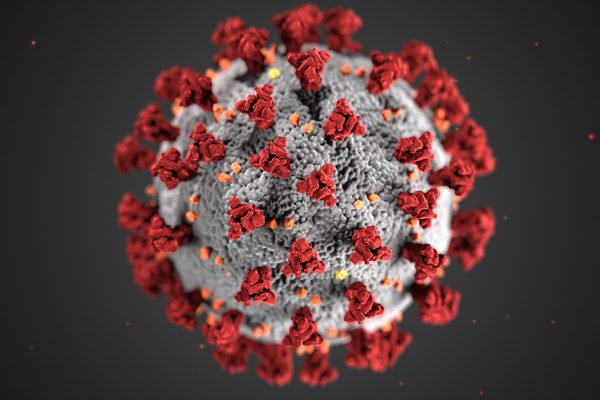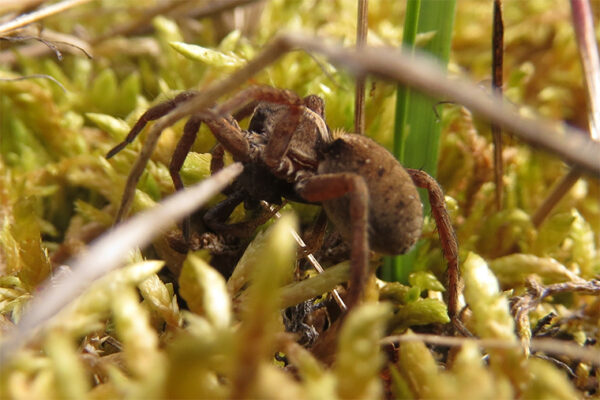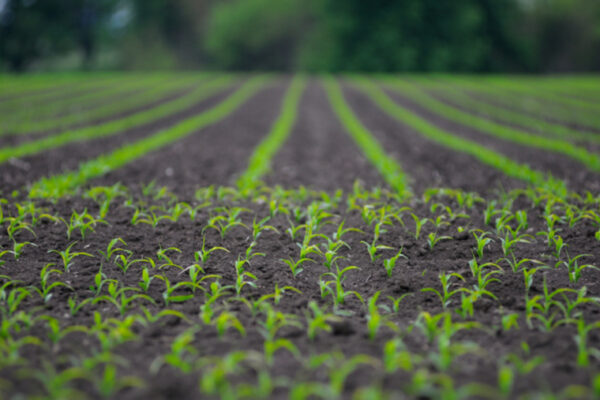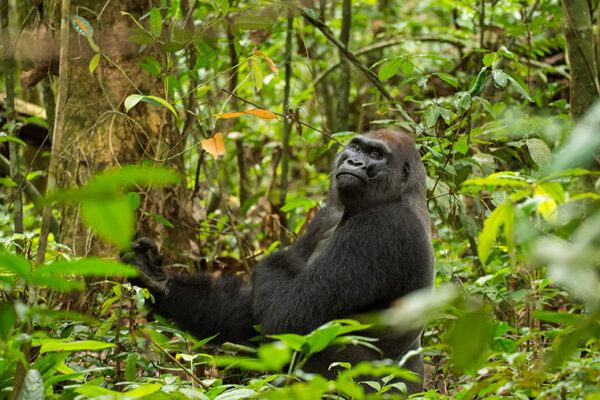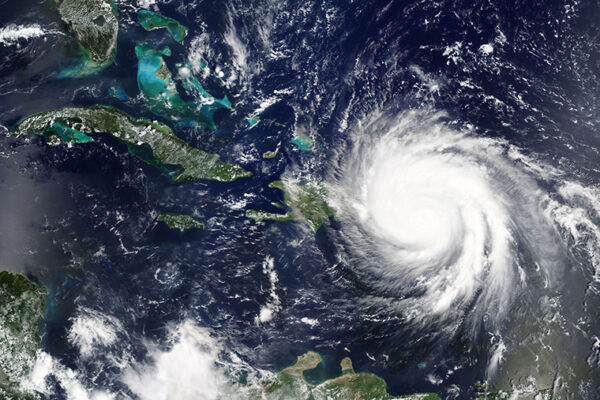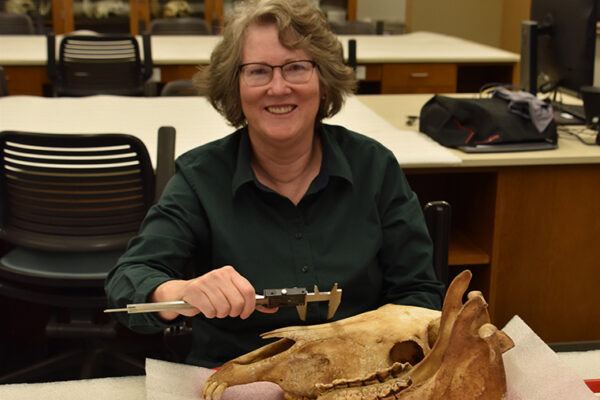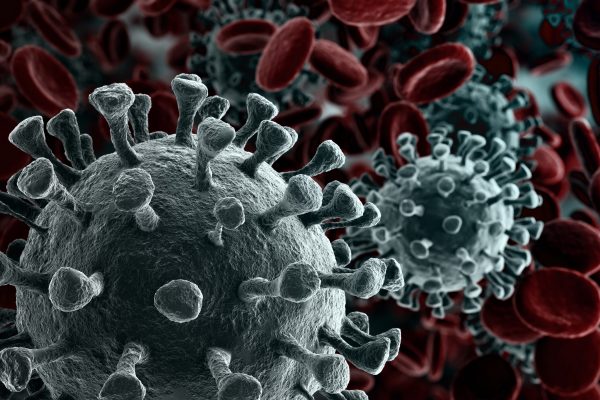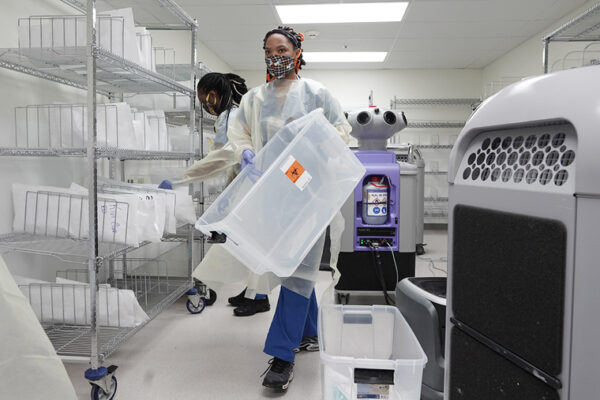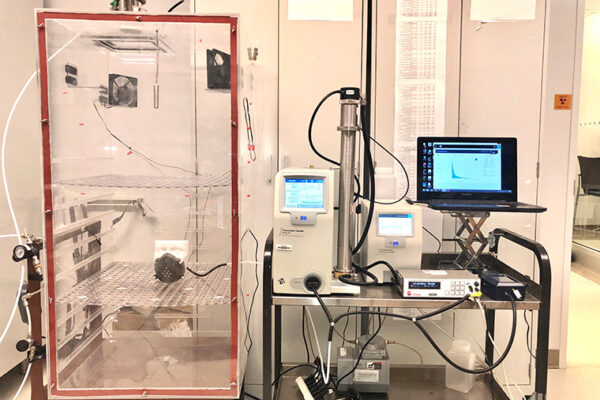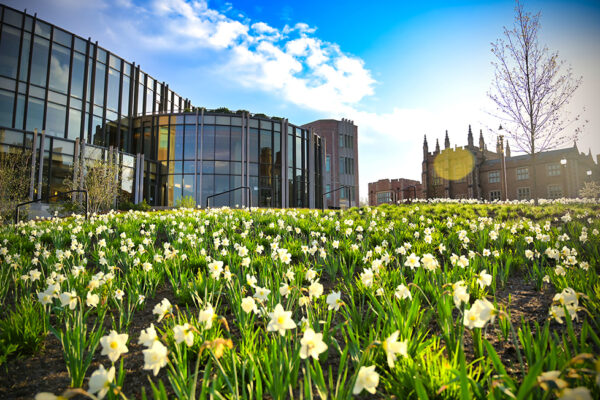Students tackle anthropology of COVID-19
Undergraduates in the class “Anthropology of Infectious Diseases” in Arts & Sciences presented their findings during a remote symposium held April 22. The event was the last gathering for students in a course that became far more consequential than anyone could have predicted.
Wolf spiders may turn to cannibalism in a warming Arctic
A study by biologist Amanda Koltz in Arts & Sciences at Washington University in St. Louis suggests that as female wolf spiders become larger and produce more offspring, competition among them increases — triggering higher rates of cannibalism and reducing the number of young spiders that survive to adulthood.
New method for measuring RNAi pesticide in soil
Researchers at Washington University in St. Louis have developed an extraction and cleanup method that, for the first time, will allow for measurements of RNAi pesticides in soil.
Close encounters in the forest: western lowland gorillas
New research led by anthropologists at Washington University in St. Louis shows that encounters between gorilla groups were much more frequent, and that they had more varied social exchanges than expected. The effort is part of a long-term collaboration with the Congolese government and Wildlife Conservation Society that is changing perspectives on gorilla behavior, ecology and health.
Hurricanes twist evolution in island lizards
A new study from Washington University in St. Louis is the first to demonstrate evolutionary response to hurricanes on a wide geographic scale.
Marshall elected to American Academy of Arts and Sciences
Anthropologist Fiona Marshall in Arts & Sciences was elected a member of the American Academy of Arts and Sciences on April 23.
Mathematical model predicts COVID-19 hospitalizations for those with underlying conditions
Mathematician Steven G. Krantz in Arts & Sciences at Washington University in St. Louis is using a mathematical tool called wavelets to combat underreporting in the COVID-19 pandemic. His latest model predicts the number of near-term hospitalizations for older adults with one or a combination of underlying conditions: hypertension, cardiovascular disease and lung disease.
Maker Task Force works to protect front-line health-care workers
The COVID-19 WashU/BJC Maker Task Force has emerged as a central hub for St. Louis-area makers to help people in health-care settings stay safe as they care for patients during the COVID-19 pandemic. The multidisciplinary group is working to develop everything from isolation gowns to ventilator replacement parts.
Aerosol researchers at McKelvey School of Engineering tackle novel coronavirus
Aerosol research at the McKelvey School of Engineering at Washington University in St. Louis is working at breakneck speed to understand the novel coronavirus and its effects at scales ranging from ecosystems to virus particles suspended in droplets.
Sustainability doesn’t stop
As the world marks the 50th anniversary of Earth Day, Washington University in St. Louis continues to advance the university’s sustainability and climate change platform, despite pandemic protocol shifts.
Older Stories
